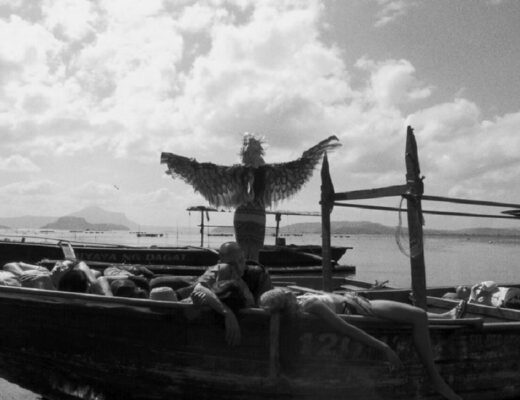The accolades that critics, fans, and lay listeners alike have bestowed upon Blue Lines since its release in 1991 — being branded as the album that spawned trip hop, becoming a staple of UK dance music, and being regarded as one of the greatest LPs of the ’90s — are vast and varied. When approaching genre-defining albums and artists that have gained mythological status, it can be easy to feel overwhelmed, or even mildly nervous. “What if I don’t like it? Does that mean I don’t ‘get’ trip hop?” “If I do like it, is my enjoyment authentic or the result of falling victim to cultural groupthink?” Put simply, unless much of one’s life has been spent on a desert island, there is no such thing as an objective first listen of Blue Lines. Although the coveted “objective listen” might be out of reach for Blue Lines newcomers, an informed listen is both possible and rather easily attained — to know Massive Attack is to know Bristol, a city dedicated to clandestine sounds and underground urban culture. A hotspot for Caribbean immigrants in the 1970s, Bristol quickly became home to a diverse music scene that revolved around sound system culture and communal underground parties. Local DJs spun punk, reggae, and blues records to follow up live acts and accompany graffiti art installations. Two of these DJs, Daddy G and Andrew Vowles, made acquaintance with graffiti artist and rapper Robert Del Naja while throwing parties with the Wild Bunch sound system crew. In 1988, the three formed Massive Attack separately from the Wild Bunch and began to record the tracks that would later be released on Blue Lines. This lineage — of DJs and music heads with an unwavering obsession with sound — is essential to the making of Blue Lines, a sample-heavy record that often employs vinyl breaks and cites inspiration from the likes of Billy Cobham, Wally Badarou, and Isaac Hayes. The production of the record itself was made possible in large part through the financial backing and tough love of Neneh Cherry, who “kicked our [Massive Attack’s] arses and got us in the studio.” Most of the recording took place in Cherry’s Bristol home, over an eight-month period beginning in 1990. However, many of the ideas that were realized on the record were nearly seven years in the making.
That Blue Lines employed sonic ideas that had been aged and in development for the better part of a decade makes sense, considering it’s one of the most self-assured and confidently groundbreaking freshman releases of the past three decades. “Safe from Harm” rings the album into existence with a sampled Billy Cobham bassline, one that’s shrouded in ambient field recordings and synthesizers to the point of full detachment from its source song. Bristol singer-songwriter Shara Nelson’s passionately contemplative vocals carry hooks that are interspersed with softly meditative rapping from Del Naja. As with every Massive Attack track, attention to sonic detail is placed as the highest priority; the rhythm section alone employs drum samples from Cobham, Funkadelic, and Herbie Hancock’s jazz standard, “Chameleon,” all while creatively splicing Del Naja’s vocals in-sync with the drumline to mimic vinyl scratching. Other standouts include the title track, which is a smooth and bluesy groover that was co-written by various jazz musicians, including Larry Carlton, a session musician for Steely Dan and Joni Mitchell in the ’70s and ’80s. It also includes debut verses from Adrian Thaws (stage name Tricky), one of the finest rappers the UK has ever produced. A cover of William DeVaughn’s “Be Thankful for What You’ve Got,” radiates warmth and grace and reaffirms the album’s endless eclecticism before the halfway point. The juxtaposition of orchestral strings and a tantalizingly mellow hip-hop rhythm section make “Unfinished Sympathy” one of the more beautiful pieces of popular music recorded in the past 30 years, and “Daydreaming” is perhaps the album’s ideological calling card, fully embodying the pitch-black ingenuity of the Bristol trip-hop sound. Horace Andy’s silky, enlightened lyrics on album closer “The Hymn of the Big Wheel” ring as true today as they did in ’91: “The big wheel keeps on turning / On a simple line day by day / The earth spins on its axis / One man struggle while another relaxes.” The only struggle a new listener of Blue Lines faces is finding another album since that so effortlessly dances through genre, sound, and culture, all while never missing a beat.
Part of Kicking the Canon – The Album Canon.







